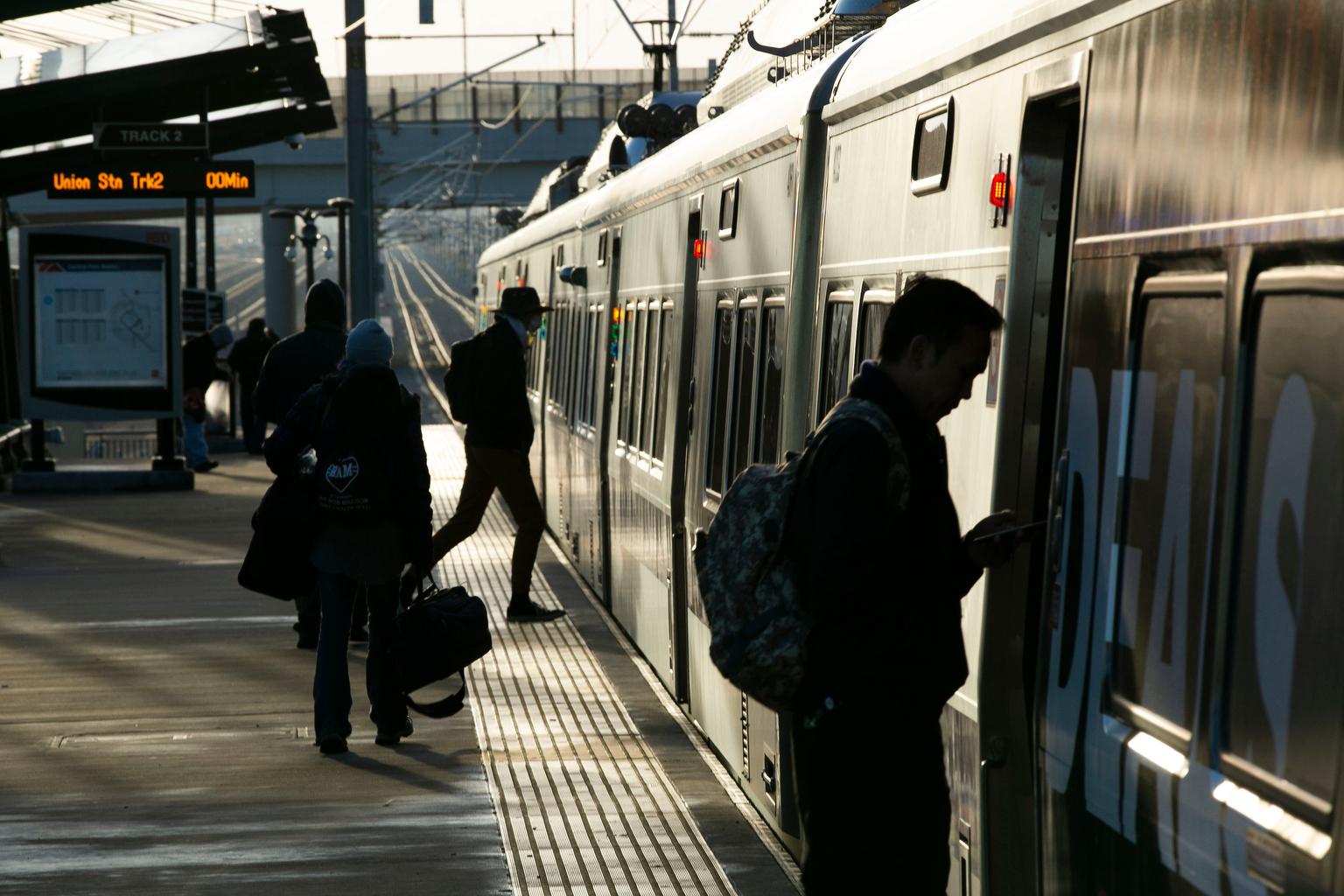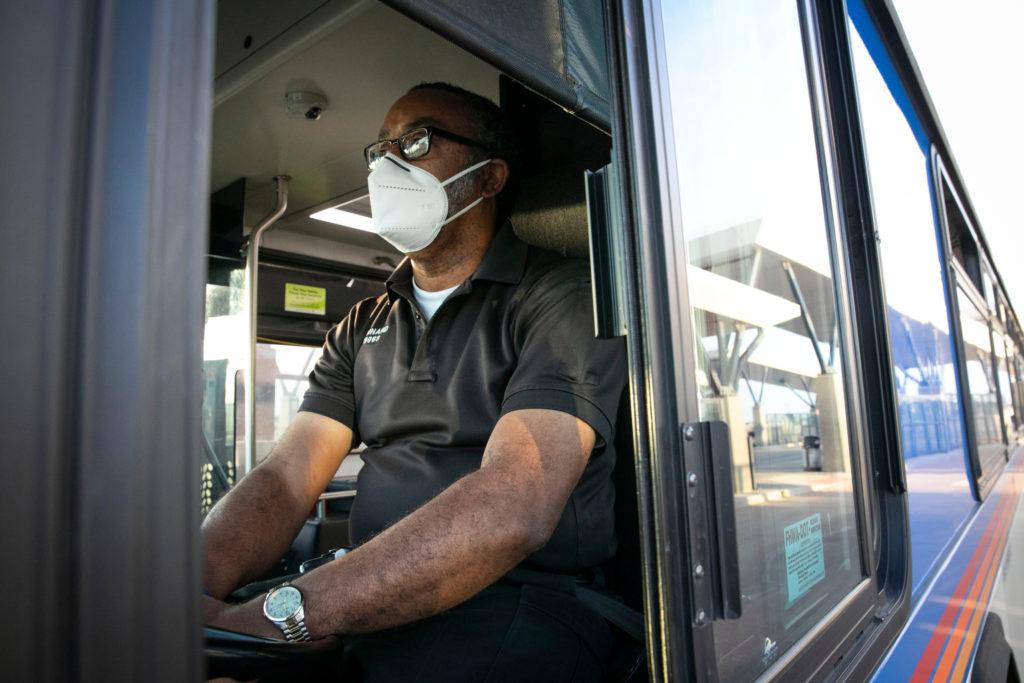
After more than a month of precipitous ridership declines, service reductions and potentially hundreds of millions of dollars in lost revenue, transit agencies are now planning for a new phase of life after coronavirus — one where more Coloradans are going back to work.
And that presents a new challenge for organizations that typically focus on how to attract more riders. They now must balance providing service while also providing personal space.
In short, in the age of coronavirus, no one wants to be on a crowded bus.
“What we’d really like to do is get the right riders at the right amount at the right time,” Ann Rajewski, executive director of the Colorado Association of Transit Agencies said during a webinar with transit professionals on Thursday. “We don't want to get overwhelmed with riders and then not have the ability to meet their needs in terms of social distancing.”
The Regional Transportation District, the state’s largest transit agency, is running more buses on still-popular routes and adding more train cars to allow for social distancing. Drivers are also able to skip stops if their buses are too full to take on more passengers. The agency has also limited passenger counts on most buses to 15, though some drivers say there are still too many people on some buses.
RTD General Manager and CEO Paul Ballard said he’s been in touch with business leaders in downtown Denver to keep a pulse on when workers will return in significant numbers. That could happen sometime in mid-May, he told the RTD board earlier this week, and will be key in deciding when to reinstate cut service.
"We want to make sure that we have enough operators of the buses and the trains to actually staff the service that we are bringing back," he said.
RTD has developed a plan on how to reinstate service that uses a phased approach. If certain milestones are met, like a sustained decrease in the number of COVID-19 cases, an increase in the availability of tests and effective contact tracing by public health agencies, RTD could reinstate front-door boarding and fares by June.

Normal functions wouldn’t return until a tested vaccine is available for everyone, the plan states, which agency spokeswoman Pauletta Tonilas described as a “working document” that will change. The agency is also working on an education and communication campaign called "Let's Get The Region Moving” meant to build confidence among riders, she said.
But with Denver’s stay-at-home order in effect until at least May 8, and other counties in the RTD boundaries setting their own rules, much is still up in the air.
“We don’t know exactly when fares are going to be able to be collected again, we don’t know how ridership is going to return at this point,” Doug Monroe, RTD manager of corridor planning for operations, said during the Thursday webinar.
RTD anticipates financial losses of anywhere from $206 million to a worst-case scenario of $256 million, CFO Heather McKillop told the board this week. The latter is more likely, she said. And while the estimates are actually a little sunnier than earlier forecasts, they could necessitate employee furloughs.
“If we have to do something it might be a phased approach,” she said.
RTD is set to receive $232 million in federal funding that will head off a complete catastrophe for the agency. Tens of millions will go to transit in smaller cities like Fort Collins and Colorado Springs, and about $40 million will go to rural areas, to be disbursed by the Colorado Department of Transportation.
The Roaring Fork Transportation Authority will receive about $5 million of that. Service there has also been curtailed significantly, said Jason White, an assistant planner. But even though the valley’s ski areas shut down more than a month ago, service workers who live downvalley are still riding the bus. And he expects activity could pick up as summer approaches.
“We are kind of at the mercy of whatever is happening with tourism,” he said.
Some federal money is also trickling down to small agencies that serve home-bound elderly and disabled Coloradans. Rajewski, with the Colorado Association of Transit Agencies, said she recently heard about a driver for the Seniors’ Resource Center delivering a hot meal and groceries to an elderly man.
"He started crying when he saw the driver because he hadn't eaten in two days,” she said, adding that, "It's important work that transit agencies are doing right now, even if it looks different than what we normally see.”









